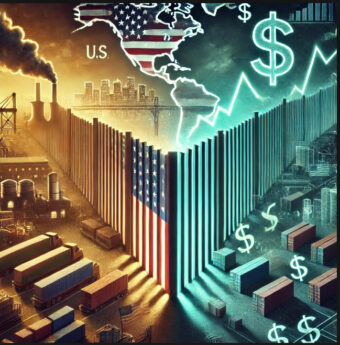This Week in Imaging: Gaining Good Will May Help Tech Companies Minimize Tariffs

As the day fast approaches when the U.S. may impose additional tariffs from 10 to 65 percent on printers, MFPs, parts and supplies made in China, it’s likely that many tech companies will be lobbying the incoming Trump administration to reduce or eliminate those tariffs, just as many did during the first Trump administration.
And like it or not, who does or doesn’t get slammed with tariffs may depend on tech companies’ gifts of persuasion.
One such company has been Apple. For instance, Apple CEO Tim Cook met with President Trump repeatedly during his first term, and managed to substantially reduce tariffs on Apple products. In part, Cook was able to do so by emphasizing that many Apple products are made in India, not China, and that Apple’s Mac Pros are made in Austin, Texas.
Printer companies will also have to make their case that their products should be exempt. For instance, while most of HP Inc.’s products are made outside of the U.S., the company may be able to win some good will by emphasizing that it’s bringing technology-production back to the U.S. with its planned expansion of its facility in Oregon for microfluidics semiconductor manufacturing.
In a recent earnings’ call, HP CEO Enrique Lores also explained that HP has been diversifying its supply chain for several years now: “We have been building factories in different parts of the world, and we are now in a much better position than we were a few years ago. We think competitively, we are in a strong position.”
Lores also said that HP intends to “work closely with the new administration to do the best thing for our customers and shareholders.” HP, along with other U.S. tech companies like Microsoft and Dell, are also said to be asking overseas suppliers to increase production so they can stock up on supplies before tariffs are imposed.
Meanwhile, other document-imaging companies like Ricoh have also been diversifying their supply chains, with Ricoh recently announcing that it’s planning to shift part of its production of MFPs from China to Thailand, according to Nikkei Asia.
Both HP and Xerox could both of course try to win some good will based on their decades-long history as storied, ground-breaking American technology companies. For other printer/copier companies not based in the U.S., trying to avoid tariffs is likely to be much more uphill.
This is all assuming of course that these tariffs are actually imposed. But if the administration does decide to implement them, it could be a very fast process, as they could be imposed via executive order, and Congressional approval wouldn’t be required.
This Week in Imaging
HP Leadership Discusses Print Business Stabilization, MPS, Tariffs, and More
Office Printers and Copier/MFPs
Epson Europe Ends Sales of Laser Printers
Toshiba Tec Issues Cautions for Windows Protected Print Mode
Brother Canada Opens New Montreal Repair Center
Acquisitions
Epson Completes Acquisition of Fiery, LLC for $568 Million
Imaging Supplies
New Ninestar Printer Supplies, Label Printer, Introduced in November
Market Research and Reports

You must be logged in to post a comment.